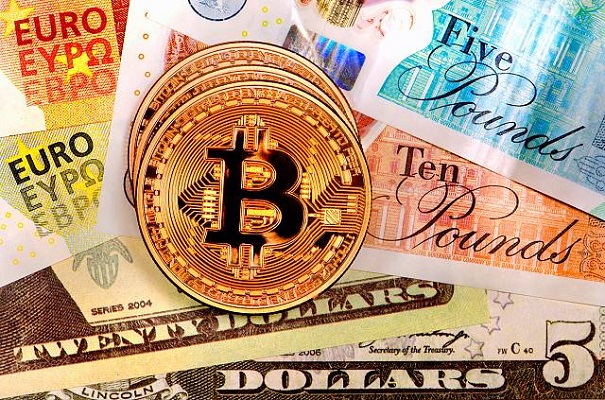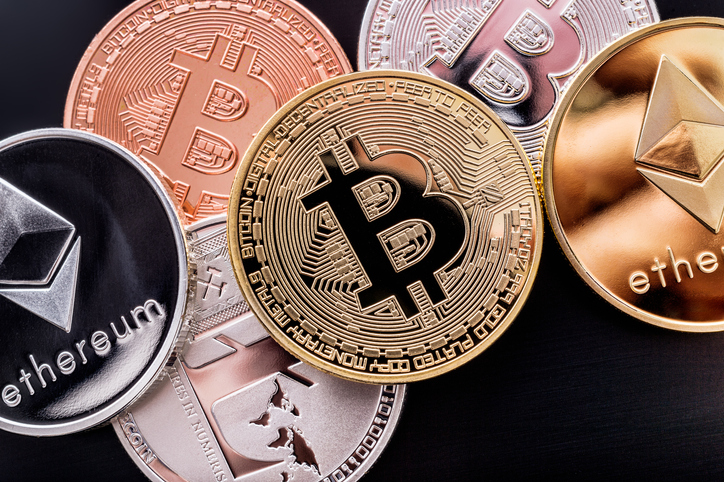Bitcoin Could Be Laid Low by Miners’ Malady
The cryptocurrency’s spectacular rally in 2021 drew thousands of entrants into mining, or producing new coins. As a result the hashrate, or combined computational power used by bitcoin miners globally, has roughly quadrupled over the past six months to blow past 200 million “terahashes” per second.
A rising hashrate makes it becomes harder for miners to earn coins and cover their costs of hardware, electricity and staff — so many are more likely to sell, rather than hold, their newly minted cryptocurrency, exerting a bearish force on the market.

Running costs are a major factor in miners’ decision to hold or sell newly acquired coins.
Read also As Bitcoin Loses $4k, 207,527 Investors, Crypto Accounts Liquidated
“Running costs are a major factor in miners’ decision to hold or sell newly acquired coins. They are the first and most natural sellers in the crypto space and so definitely impact prices,” said Justin d’Anethan, institutional sales director at crypto financial services firm Amber Group.
The total value of coins held in miners’ wallets has fallen to around US$75-billion from $114 billion at the start of November, as their profitability has been squeezed by the rising hashrate as well as falling prices, according to Oslo-based crypto research firm Arcane Research.
Miners have been transferring more coins to exchanges than adding to reserves, according to crypto industry analytics firms, a sign of selling or intent to sell.
Read also Outlaw Cryptocurrencies Now
Such flows are adding to pressures facing bitcoin, whose drift towards the mainstream has seen it caught up in a selloff in global markets driven by tensions on the Ukraine border and the Federal Reserve’s policy tightening. The world’s dominant cryptocurrency is trading at about $37 400, which is 40% below its 10 November high of $62 000.
Bitcoin mining, in simple terms, is the process by which a network of computers checks and validates a block of transactions that then get added to the blockchain. Miners get rewarded for completing a block.
It’s an expensive business, though, requiring not just sophisticated and fast “rigs” costing upwards of $10 000, but also a huge amount of power. And it’s getting pricier.
The seven-day average of total mining cost per transaction validated has fallen to $176.80 from a record $235.57 hit in May last year, data from blockchain.com shows.
“As more miners join the network, each individual earns fewer bitcoin. This is because network difficulty increases in order to slow the issuance of new bitcoin,” said Joe Burnett, analyst at infrastructure and mining firm Blockware Solutions.
Waning mining profitability is also hitting the broader market because some institutional investors, who are unable or unwilling to invest directly in cryptocurrencies, instead buy shares of listed miners or ETFs that track miners as an alternative way of gaining access to the young industry.
Shares of US-listed crypto miners Marathon Digital Holdings and Riot Blockchain have plunged 66% and 52% respectively since early November.
The Valkyrie Bitcoin Miners ETF is meanwhile trading at a roughly 5% discount to its net asset value since the fund’s launch in early February, and the Viridi Clean Energy Crypto-Mining & Semiconductor ETF has lost 23% since the beginning of the year.
Some of the pressures on miners flow from bitcoin’s inherent structure. The decentralised blockchain was created anonymously with a final limit of 21 million coins, of which nearly 19 million has already been minted.
It takes around 10 minutes to mine one block and the reward for miners — who currently get 6.25 bitcoin per block — is halved about every four years.
Read also Nigerian B2B Payments Startup Duplo Bags $1.3m In Pre-seed Round
“There could be one miner or a million, it doesn’t change anything. There’s only one block and a set number of bitcoins issued,” said d’Anethan at Amber Group.
Kelechi Deca

Kelechi Deca has over two decades of media experience, he has traveled to over 77 countries reporting on multilateral development institutions, international business, trade, travels, culture, and diplomacy. He is also a petrol head with in-depth knowledge of automobiles and the auto industry









